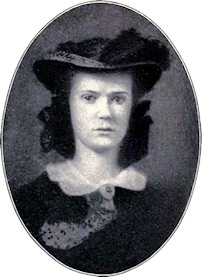September 28th.
We were roused up at four o’clock last night by the arrival of Lydia and Eugene Carter,[i] the first from Virginia and the second from Tennessee; and, of course, there was very little sleep for any of us, so anxious were we to hear the news they brought. First I learned that Gibbes was safe up to the 17th; that George, in spite of the advice of his surgeon, had rejoined Stonewall Jackson in Maryland; and Jimmy was midshipman on the ironclad Palmetto State at Charleston. How thankful I was to hear that much, I need not say. Lydia said they all three looked remarkably well; Jimmy handsomer than ever. After that, news of all kinds came indiscriminately. The boys were very anxious about us, but had no idea of our misfortunes or whereabouts. They believed us still in Baton Rouge, and feared we had been there during the battle. Lydia only heard of our house having been plundered when she reached Alabama, so of course they are still ignorant of it. They were all very homesick, but said that we were their only trouble.
A few of the C––s’ stories had reached them through brother officers; and George swore to make himself understood by those ladies if he ever saw them again. A gentleman from Cooper’s Wells told Lydia that they never tired of repeating their stories to every new arrival; and no man was suffered to depart without having heard a few. If a gentleman friend of ours or the boys inquired if they knew the Miss Morgans of Baton Rouge, “Oh, yes!” would be the answer, “intimately! But you know they have turned Yankee. Received Federal officers every day, and placed all their property under Yankee protection. I” (or “my sister,” as it happened who was retailing the lie, meaning Mrs. S––) “slept in their house when it was surrounded by a Yankee guard. Oh, they are perfectly in favor of the Yankees,” and so on. Think of a common, low soldier who stopped for buttermilk somewhere where Anna was, introducing the subject. “It is all false!” Anna interrupted. The man answered, “Oh, Miss! you don’t suppose we believe it? We would not believe such stories of any young ladies, much less these; for if they are true, their conduct must have been perfectly disgraceful. But though we know these stories to be lies, it does not prevent their being discussed in camp.”
Lydia saw Mr. McG–, too, at Lynchburg, who sent me his “regards.” Poor fellow! He says he still has “dreams”! He told her a few, but she says they were chiefly about meeting me at a ball, when I always treated him with the most freezing coldness. The same old nightmare. How often he has told me of that same dream, that tormented him eighteen months ago. He says he often thinks of me now – and he still “dreams” of me! “Dreams are baseless fabrics whose timbers are mere moonbeams.” Apply your own proverb! . . .
A clatter of hoofs down the road! And bent over the window-sill which is my desk, my fingers are not presentable with the splattering of this vile pen in consequence of my position. Two hours yet before sundown, so of course I am not dressed. They come nearer still. Now I see them! Dr. Addison and Mr. M––! I shall not hurry my toilet for them. It will take some time to comb my hair, too. Wish I could remain up here!
i] Lydia, daughter of General Carter and wife of Captain Thomas Gibbes Morgan; Eugene, eldest son of General Carter, and husband of Helen mentioned in the Diary.
